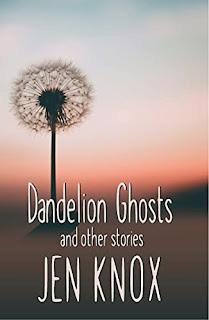The variability of Feedback, however, is great. So, I thought I'd examine it from both sides.
All that said, if I'm reading something in a workshop or for a friend, I don't have a problem sticking with the work, and being completely honest. In fact, I find it rather fun to tease out what I don't like; conversely, it's educational to pinpoint exactly what it is I do like. This sometimes means facing a defensive writer (friend or otherwise), let me tell you, but I find that any serious writer will keep an open mind to my genuine response.
As such, I've learned to hold myself to certain standards when reviewing a piece of writing. Here are my few rules:
Rule One - Honesty. Some writers are overly complimentary when they provide feedback. Perhaps they want to spare another writer's feelings, or maybe they want the writer to like them, and so they only focus on the positive. No matter how nice I would like to be, I refuse to give unwarranted praise. I ask myself, do I really want those who read my work to stroke my ego? Or, do I want them to be honest?
Well, since I always value honesty, it's only fair that I do the same for others. Further, I feel as though I learn a lot about my own work each time I dissect another's story and tell him/her exactly what I liked/didn't like about it.
Rule Two - Offer the writer an analysis of his/her work, not an emotional response. I've learned that if I have an emotional response to the content, the writer might just be doing something right. So now I ask myself, what is it, specifically, that is unlikable about the work? Is it just that I disagree with the writer's views? And if so, fine, but own up to it, then get down to business and offer a critique of the writing/storytelling as well.
Getting Feedback: Um, this is harder for me. I'm a giver... No, but really, I have an extra rule for this category, but as you'll see, my personal standards when it comes to being reviewed are damn-similar.
Rule One - Be open-minded. As genius as I'd like to think I am, I am sure that I will always have room to grow. So even if I don't agree with a reader's critique, I think about what was said before immediately agreeing or disagreeing with it.
Rule Two - Maintain Artistic Integrity. This one used to be incredibly tough for me because I lacked confidence, but it's one I've finally learned to adhere to. I allow myself to disagree with advice and opinion. If a reader suggests that I erase a few lines, for instance, and I think those lines are necessary to the story, I can now keep them. So long as I can justify this decision for artistic reasons.
Rule Three - Be tough. Sometimes we artistic folks can get love-blind to our own work. We can write a thing and just know that it's ready for The New Yorker
From what I hear, these thoughts are normal, but they pass if we keep at it, and we continue to learn. A writer has to be tough, yes, but must always keep an open mind. It's a true balancing act.
Your thoughts?

I am glad you feel that way jen as i have been meaning to tell you...... Nah just joking.
ReplyDeleteIts good to see that you feel that way about the reviewing side of the books. But dont forget not everyone is going to like the book they are reading and it doesnt matter, as its the ones that do love it, the ones who devour it that will remember it and you for the rest of their lifes.
Dont think any less about your writing, as you write it for you and from your heart. Its easy for readers to think they know all the answers, but seriously if they gave it a go its not as easy as they think. We all develop over time, and only time will tell.
Good point! A published work is an entirely different animal. Publication is like a stamp, saying "I'm done, take it or leave it." I agree, an author has to stand by his or her work if s/he plans on publishing. This business isn't for the weak of heart.
ReplyDeleteGiving a writer good feedback is hard, but your rules are a good yardstick to use. If we ask for the truth of our work, we should expect to get a bruise or two to our egos. Roland
ReplyDeleteAgreed, Roland. This is no easy business. I need these rules to adhere to, they're so easy to forget.
ReplyDeleteHi! I really liked your blog. I am your newest follower! Please follow me back. I am sure that you will like my blog. Thank you..
ReplyDeleteMy link:
http://isaburakgonca.blogspot.com/
Critiquing art is difficult because like most things, it's 'estimation' is subjective. Something like the terms good and bad. When I come to books I don't like I do them just like I do some pieces hanging in museums. Shake my head, uncrook my neck and uncross my eyes, and keep on walking right by. LOL.
ReplyDeleteJen, when's the next book? Please keep me posted!
Rhonda, Uncross your eyes.. Ha!
ReplyDeleteI missed this comment! So sorry... I agree. Often art is interpretive. One thing I find with new writers (including myself a few years back) is that they often include an explanation with their writing. I say, if explanation is necessary, the work isn't doing the job. Or, I'm not your target audience :)